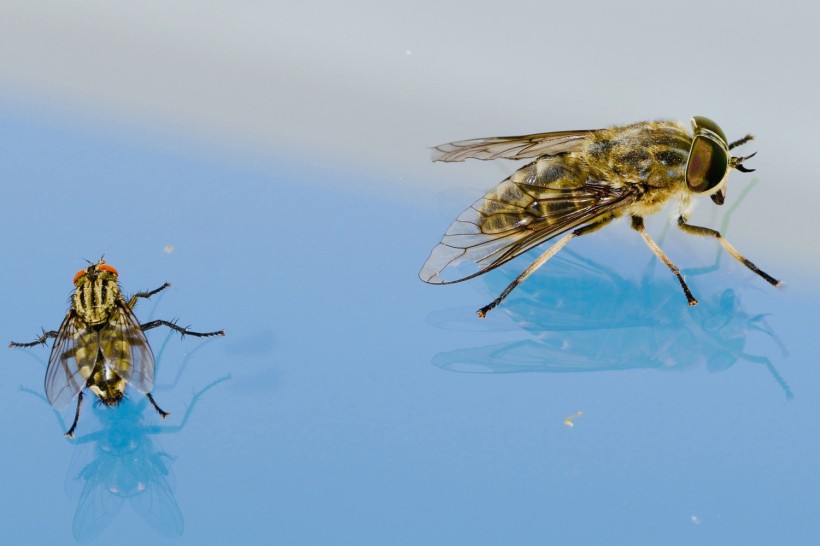Physiologists Christi Gendron and Tuhin Chakraborty of the University of Michigan have observed that when fruit flies encounter dead flies, they exhibit withdrawn behavior, experience weight loss, and undergo accelerated aging, leading to premature death.
A recent study, titled "Ring Neurons in the Drosophila Central Complex Act as a Rheostat for Sensory Modulation of Aging" published in PLOS Biology, sheds light on the phenomenon's underlying mechanism. Researchers found that two types of neurons in the flies, sensitive to the neurotransmitter serotonin, become activated upon perceiving dead comrades, triggering an increased rate of aging.

Fruit Flies Exposed to Other Fly Carcasses Dies Faster, Scientists Explain Why This Happen
Link Between Death Perception and Aging
Recent research has revealed that perceiving dead flies can have a significant impact on the aging process in fruit flies, Phys.org reported. The study showed that a particular group of neurons, known as R2 and R4 neurons, become activated in response to dead conspecifics, leading to accelerated aging. The key factor in this process is the serotonin receptor 5-HT2A located in these neurons.
Experiments involving fluorescent tagging demonstrated increased activity in the ellipsoid body region of the fly brain when exposed to dead flies. Silencing different ring neurons within this region confirmed the essential role of R2 and R4 neurons in the observed effect. Moreover, artificially activating these neurons resulted in reduced lifespans for the fruit flies, regardless of their actual perception of death.
Understanding the mechanisms by which neural circuits regulate aging could have implications for the development of targeted therapies in humans to slow down the aging process. The identification of specific neurons and evolutionarily conserved molecules associated with aging regulation provides valuable insights into how environmental conditions and experiences can influence the rate of aging.
READ ALSO: Lonely Fruit Flies Eat More, Sleep Less Like Humans Living During the Pandemic
Research Findings May Provide Insight on Death Perception
Similar effects have been observed in various animal species, such as eusocial insects practicing necrophoresis, elephants vocalizing and inspecting corpses, or nonhuman primates experiencing an increase in glucocorticoid hormone levels.
In fruit flies, the role of serotonin, a crucial neurotransmitter, and one of its receptors, 5-HT2A, was investigated to understand the physical effects of death perception.
Although the differences between fly brains and human brains are significant, this research provides valuable insights into the relationship between death exposure and physiological changes.
The findings may contribute to a better understanding of the aging process and brain function in humans, particularly in individuals who frequently encounter stress-related situations involving death, such as active combat soldiers and first responders.
More so, the research findings provide valuable insights into the impact of death perception on various physiological and behavioral aspects in individuals, including humans.
By understanding the neural circuits involved in these processes, scientists aim to gain a deeper understanding of the consequences associated with sensory experiences and how specific neural states can influence behavior and physiology.
The researchers anticipate that this knowledge will have future implications for developing treatments or interventions for individuals exposed to the stressful circumstances surrounding death, potentially benefiting those in challenging societal roles.
RELATED ARTICLE: Deadly Fungus Turns Flies Into Zombies and Releases Pheromones Attracting Males to Mate With the Corpse
Check out for more news and information on Insects in Science Times.














